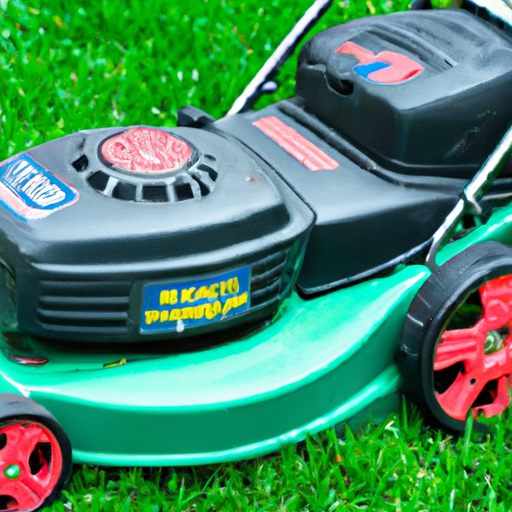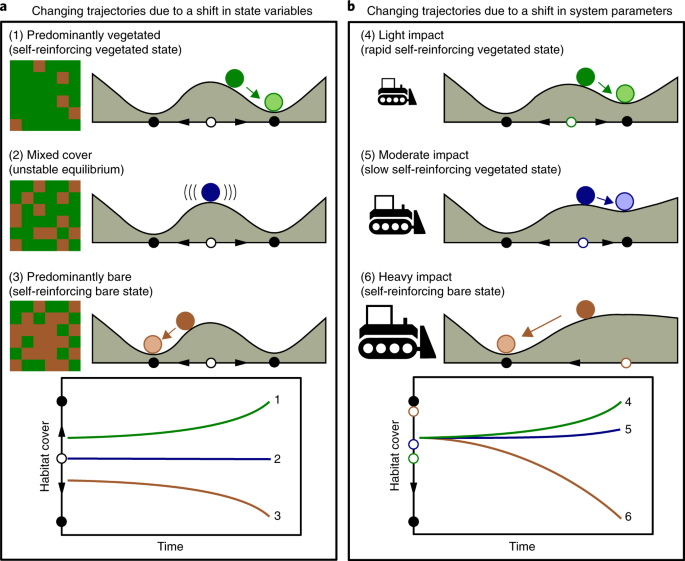If you’re in the market for a new lawn mower battery, it’s essential to consider the warranty options available to you. The right warranty can provide peace of mind and save you from unexpected expenses down the line. In this article, we’ll discuss the importance of selecting the right lawn mower battery warranty and provide helpful tips to help you make an informed choice. So, before you make your next lawn mower battery purchase, be sure to read on to ensure you’re making the best decision for your needs.
1. Understanding Lawn Mower Battery Warranties
1.1 What is a warranty?
A warranty is a written agreement between the manufacturer or seller of a product and the buyer, which guarantees that the product will be repaired or replaced if it develops any defects or malfunctions within a certain period of time. In the case of lawn mower batteries, a warranty ensures that you are protected against any unexpected issues that may arise with your battery.
1.2 Importance of a warranty
A warranty is crucial when it comes to purchasing a lawn mower battery. It gives you peace of mind knowing that if anything goes wrong with the battery, you won’t be left with the expense and inconvenience of having to replace it yourself. Additionally, a warranty shows that the manufacturer stands behind the quality and reliability of their product.
1.3 Types of lawn mower battery warranties
There are typically three types of warranties offered for lawn mower batteries:
-
Manufacturer warranty: This is the warranty provided by the company that manufactured the battery. It usually covers a specific period of time and may have certain limitations and exclusions.
-
Extended warranty: This is an optional warranty that can be purchased separately from a third-party provider. It extends the coverage period beyond the manufacturer’s warranty, providing you with additional protection.
-
Third-party warranty: This type of warranty is offered by companies other than the battery manufacturer. They provide coverage for a specific period of time and may have their own terms and conditions.
2. Factors to Consider When Choosing a Lawn Mower Battery Warranty
When selecting a lawn mower battery warranty, there are several important factors to take into consideration.
2.1 Battery lifespan
One of the key factors to consider is the expected lifespan of the battery. Different batteries may have varying lifespans, and it’s essential to choose a warranty that aligns with the battery’s expected longevity. A longer warranty period indicates that the manufacturer has confidence in the durability and performance of the battery.
2.2 Coverage period
The coverage period of a warranty is the length of time during which the battery is protected against defects and malfunctions. It’s crucial to ensure that the warranty provides sufficient coverage for the expected lifespan of the battery. A longer coverage period means you’ll have peace of mind for a longer period of time.
2.3 Coverage details
Before selecting a warranty, it’s essential to carefully review the coverage details. Make sure you understand exactly what is covered and what is not. Some warranties may only cover specific parts or components of the battery, while others may offer more comprehensive coverage. It’s important to choose a warranty that provides the level of coverage you’re comfortable with.
2.4 Replacement policies
In the unfortunate event that your battery needs to be replaced, it’s important to understand the warranty’s replacement policies. Some warranties may offer a full replacement of the battery, while others may only cover repairs or provide a prorated reimbursement. Knowing the replacement policies will help you make an informed decision about which warranty is best for you.
2.5 Warranty claim process
Understanding the warranty claim process is essential to ensure a smooth and hassle-free experience. Find out what steps you need to take to file a warranty claim and how long it typically takes for the claim to be processed. Some warranties may require you to register your battery or provide proof of purchase, so it’s important to be aware of any specific requirements.
2.6 Fine print and exclusions
Before finalizing your decision, carefully read the fine print of the warranty. Look for any exclusions or limitations that may affect the warranty’s coverage. It’s common for warranties to have certain conditions or exclusions, such as damage caused by misuse or neglect. Understanding these terms will help you determine if the warranty aligns with your needs and expectations.
3. Different Types of Lawn Mower Battery Warranties
When it comes to lawn mower battery warranties, there are three main types to consider: manufacturer warranties, extended warranties, and third-party warranties. Each type has its own advantages and considerations.
3.1 Manufacturer warranty
A manufacturer warranty is the warranty provided directly by the company that manufactured the lawn mower battery. They typically vary in length, with some offering shorter periods and others providing longer coverage. Manufacturer warranties are often included with the purchase of a new battery and are designed to protect against any defects or malfunctions that may occur during the specified coverage period.
3.2 Extended warranty
An extended warranty is an additional warranty that can be purchased separately from a third-party provider. These warranties are meant to extend the coverage period beyond what is offered by the manufacturer warranty. Extended warranties provide peace of mind by protecting you against unexpected battery failures and offering additional customer support. They are especially beneficial if you plan to keep your lawn mower for an extended period or if you want extra assurance for a longer time.
3.3 Third-party warranty
A third-party warranty is one offered by companies other than the manufacturer. These warranties may come with their own terms and conditions and can offer similar coverage to manufacturer warranties or extended warranties. Third-party warranty providers specialize in offering warranty solutions for a wide range of products and can often provide more competitive pricing or additional coverage options. However, it’s important to research and compare different third-party providers to ensure their reliability and trustworthiness.
4. Manufacturer Warranty Coverage
When considering a manufacturer warranty for your lawn mower battery, there are a few important aspects to pay attention to.
4.1 Length of manufacturer warranty
The length of the manufacturer warranty is a crucial factor to consider. It indicates how long the manufacturer is willing to guarantee the performance and quality of the battery. Longer warranties generally suggest that the manufacturer has confidence in their product and are willing to support it for an extended period of time.
4.2 Battery performance coverage
Manufacturer warranties typically cover defects and malfunctions that may affect the performance of the battery. This can include issues such as decreased capacity, charging problems, or failure to hold a charge. Understanding the specific performance aspects covered by the warranty will help you assess the level of protection provided.
4.3 Exclusions and limitations
It’s essential to carefully review any exclusions or limitations outlined in the manufacturer warranty. These exclusions may include damage caused by misuse or neglect, accidents, or natural disasters. By understanding these limitations, you can determine if the warranty aligns with your expectations and usage.
5. Extended Warranty Options
Opting for an extended warranty can provide additional protection beyond the manufacturer warranty. There are several key considerations when evaluating extended warranty options for your lawn mower battery.
5.1 Benefits of extended warranties
Extended warranties offer peace of mind by extending the coverage period for your battery. They provide an added layer of protection and assurance against unexpected battery failures. With an extended warranty, you won’t have to worry about the cost of repairs or replacements during the extended coverage period.
5.2 Additional coverage
Extended warranties often offer additional coverage beyond what is provided by the manufacturer warranty. This can include coverage for accidental damage, power surges, or even normal wear and tear. Assessing the additional coverage options will help you determine if the extended warranty meets your specific needs and provides valuable protection.
5.3 Cost considerations
When considering an extended warranty, it’s important to evaluate the overall cost. Extended warranties typically require an upfront payment or regular premium payments. Calculate the total cost of the warranty coverage and compare it to the potential repair or replacement costs you may incur without the warranty. Make sure the cost of the warranty aligns with the value and peace of mind it provides.
6. Third-Party Warranty Providers
Third-party warranty providers offer an alternative option to manufacturer warranties and extended warranties. Here are some key points to consider when exploring third-party warranty options for your lawn mower battery.
6.1 Advantages of third-party warranties
One advantage of third-party warranties is that they often provide competitive pricing compared to manufacturer warranties or extended warranties. They may also offer additional benefits such as flexible coverage options and customizable plans. Third-party warranty providers specialize in warranty solutions, meaning they may have more expertise and resources dedicated to addressing customer needs.
6.2 Extra coverage options
Third-party warranty providers may offer additional coverage options that go beyond the standard warranty package. These options can include coverage for specific components, accidental damage, or even regular maintenance services. Assessing the extra coverage options will help you determine if a third-party warranty aligns with your specific needs and provides comprehensive coverage.
6.3 Research and comparison
When considering third-party warranty providers, it’s crucial to conduct thorough research and comparison. Look for reputable providers with positive customer reviews and a track record of good customer service. Compare the terms, coverage, and pricing of different providers to ensure you are getting a reliable and cost-effective third-party warranty.
7. Assessing Battery Lifespan and Performance
To make an informed decision about the most suitable lawn mower battery warranty for your needs, it’s important to consider battery lifespan and performance.
7.1 Factors affecting battery lifespan
Several factors can influence the lifespan of a lawn mower battery. These include the quality and construction of the battery, usage patterns, maintenance practices, and environmental conditions. Some batteries may have a shorter lifespan due to their design or materials used, while others may be built to withstand more demanding conditions.
7.2 Battery maintenance and care
Proper maintenance and care can significantly impact the performance and lifespan of a lawn mower battery. Regularly cleaning the battery terminals, ensuring proper charging, and storing the battery in a cool and dry place can help prolong its life. Some warranties may even require specific maintenance practices to be followed in order to maintain warranty coverage.
7.3 Performance expectations
Understanding the performance expectations of the battery is important when selecting a warranty. This includes factors such as the battery’s capacity, charging time, and overall performance. Evaluate your specific needs and usage requirements to ensure that the battery’s performance aligns with your expectations.
8. Understanding Coverage Periods
Different warranties offer varying coverage periods, and it’s essential to understand the implications of each option.
8.1 Short-term warranties
Short-term warranties typically last for one year or less. They provide basic coverage for defects or malfunctions that may occur within the specified period. Short-term warranties can be suitable for batteries with a shorter expected lifespan or for those who plan to upgrade their lawn mower battery in the near future.
8.2 Medium-term warranties
Medium-term warranties usually cover the battery for a period of one to three years. These warranties offer extended protection, providing coverage during the critical early years of battery performance. They can be a good choice for individuals looking for a balance between coverage duration and cost.
8.3 Long-term warranties
Long-term warranties cover the battery for an extended period, typically three years or more. These warranties offer the highest level of protection, ensuring that your battery is covered for a significant portion of its expected lifespan. Long-term warranties provide peace of mind and are suitable for those looking for maximum coverage and long-term usage.
9. Details of Warranty Coverage
Carefully reviewing the details of warranty coverage is essential to ensure comprehensive protection for your lawn mower battery.
9.1 Parts and components covered
Warranty coverage can vary in terms of the specific parts and components covered. Some warranties may provide comprehensive coverage for all parts of the battery, while others may only cover specific components. It’s important to understand which parts are included in the warranty to ensure that you have adequate protection.
9.2 Repair vs. replacement coverage
Warranty coverage can also differ in terms of whether it offers repair or replacement coverage. Some warranties may provide repair services to fix any issues with the battery, while others may offer a full replacement if the battery cannot be repaired. Understanding the coverage type will help you assess the level of protection provided by the warranty.
9.3 Return policies
In the event that you need to return a faulty battery, it’s vital to understand the return policies outlined in the warranty. This includes knowing who is responsible for return shipping costs and whether any restocking or administrative fees apply. Familiarizing yourself with the return policies will ensure a smooth and hassle-free process if a return becomes necessary.
10. Replacement Policies and Procedures
Understanding the replacement policies and procedures of your lawn mower battery warranty is essential for a seamless resolution in case of battery failure.
10.1 Battery testing and verification
Before a replacement is granted, most warranties require the battery to undergo testing and verification. This process ensures that the battery is indeed faulty and qualifies for a replacement. Familiarize yourself with the testing and verification procedures to understand what is required from your end and how long the evaluation process typically takes.
10.2 Replacement eligibility
Warranty replacement eligibility criteria can vary. Some warranties require the battery to fail during the coverage period, while others may have specific conditions or limitations. Understanding the replacement eligibility requirements will help you determine if your battery qualifies for a replacement under the warranty.
10.3 Return shipping and costs
In the event of a replacement, it’s important to understand the return shipping process and any associated costs. Some warranties may cover the return shipping costs, while others may require you to bear the expense. Knowing the return shipping and cost responsibilities will ensure you are prepared and can plan accordingly.
In conclusion, choosing the right lawn mower battery warranty is crucial to ensure peace of mind and protection against unexpected battery failures. Consider factors such as battery lifespan, coverage period, coverage details, replacement policies, and warranty claim processes when making your decision. Evaluate different warranty types, including manufacturer warranties, extended warranties, and third-party warranties, to find the best fit for your specific needs. Additionally, understanding battery lifespan and performance, coverage periods, and the details of warranty coverage will help you make an informed choice. By carefully assessing these factors, you can confidently select a lawn mower battery warranty that provides reliable coverage and supports your long-term needs.
Word count: 2419





